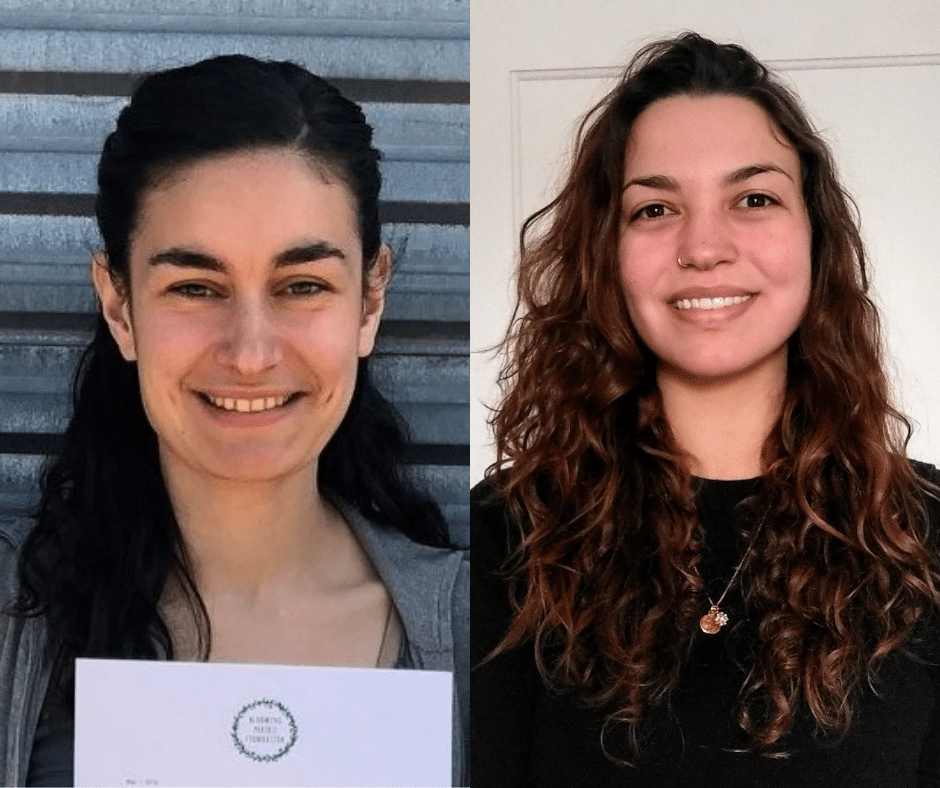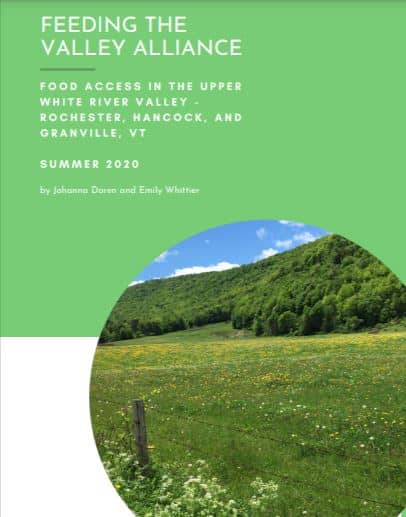
Johanna Doren and Emily Whittier worked with Feeding the Valley Alliance while earning their Master’s in Food and Agricultural Law and Policy (MFALP) degrees.
January 28, 2021
When COVID-19 hit last spring, it upended everyday life—and not just in viral hotspots and big cities. America’s economy and food system hit a breaking point: grocery shelves suddenly emptied; crops were left rotting in fields; unemployment skyrocketed. COVID-19 exposed cracks in America’s fragile food system and left vulnerable communities hungry.
The team behind local organization Feeding the Valley Alliance (FVA) understands that food insecurity threatens rural communities even in the best of times. So, as the pandemic began spreading, the nonprofit—led by Vermont Law School (VLS) Associate Director of Career Services Monica Collins along with Victor Ribaudo and Donna Lindsey—knew they needed to mobilize quickly to help residents in the towns they serve. The first step was to understand the extent of hunger and vulnerability. Reaching out to VLS’s Center for Agriculture and Food Systems (CAFS) for assistance, FVA connected with Johanna Doren and Emily Whittier, two Master of Food and Agricultural Law and Policy (MFALP) students. The duo agreed to help the organization evaluate food insecurity while finishing their degrees.
The product of their work is a report on food security in the towns of Rochester, Hancock, and Granville, Vermont. Drawing from town residents’ survey responses, personal accounts from community members, and extensive bibliographical research, it revealed some interesting findings. Not only did Doren and Whittier identify COVID-19-related increases in food insecurity and unemployment; they also found evidence of pre-existing food insecurity in the region related to poverty, disability, transportation barriers, lack of knowledge about existing services, and more. These findings enabled them to outline a series of practical recommendations FVA can use to help keep the communities fed.
Doren and Whittier both had prior experience in research and in food security work that they applied to the project, along with coursework that helped them understand the many factors shaping food access. But conducting research during COVID—and in a rural region—brought specific challenges. The duo grappled with reaching respondents via online survey, for example, learning that some residents lack computer access. “Food security is a sensitive topic, and like all community work, requires building a trusting relationship,” Whittier said. “The project was a community-identified need, and working closely with the community members who called for the project was crucial for establishing what relationships we could.”
Fortunately, help from the VLS community came in handy. “Monica [Collins] provided us with crucial connections to people—some of them past VLS students—who were able to speak with us and help us understand the unique landscape of food security in Vermont,” said Doren. “The opportunity to collect the valuable perspectives from a variety of residents and food systems experts provided us a nuanced view of the challenges and growth points in creating a state where everyone has access to the food and resources they need.”

“Johanna and Emily’s commitment to the issue of food security is impressive and we know they will go out into the world and do wonderful things.”
–Monica Collins, Feeding the Valley Alliance
The FVA team is thrilled with the outcome. “We are so appreciative of the thoughtfulness, compassion, and professionalism they devoted to putting together this report, and we are anxious to share this information with the local community and with partners,” said Collins. “Johanna and Emily’s commitment to the issue of food security is impressive and we know they will go out into the world and do wonderful things.” As their career advisor, Collins is especially proud. “I am very gratified to see how they took advantage of all the opportunities they had while at VLS, not just this one, and were able to put what they learned into action,” she added.